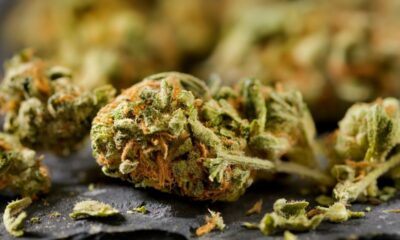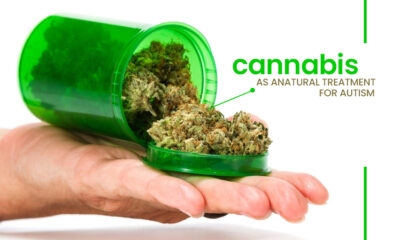Cannabis News
Police Raids Dupont Party Mansion, Finds Cannabis Pop-Up
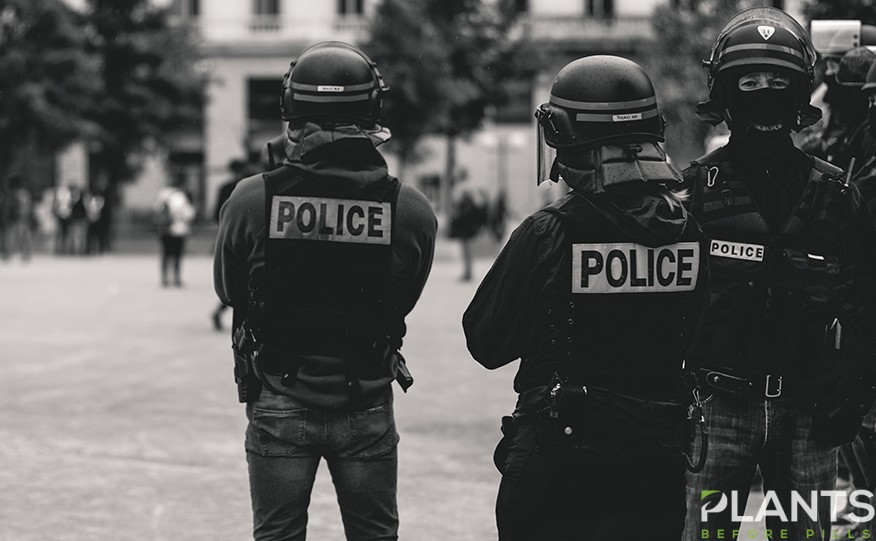
Police raided Dupont Circle last Wednesday, September 25, 2019. Authorities confiscated approximately 25 pounds of marijuana, alongside other THC edibles and vaping devices.
Dupont Circle is more popularly known as the D.C. celebrity mansion or the Dupont party mansion. The place of residence was previously marketed as a site for partying and other similar rave events, attracting the likes of rapper Ja Rule. The house, located at 2220 Q Street NW, formerly held a business permit to hold events, weddings, and other similar gatherings.
The house went through a series of events and investigations, with the last house owner, Douglas Jefferies, settling a lawsuit and agreeing to stop all other entertainment-related activities and other business transactions on-site. In July of 2019, the house was foreclosed.
Despite being closed for some time, police authorities continued to investigate drug-related activities in the area. In particular, authorities have focused their efforts to stop the alleged cannabis pop-up parties in the area.
Last September 25, 2019, Wednesday, more than 12 police officers stormed the area. The authorities were able to seize 25 pounds of marijuana, vaping instruments, and cannabis edibles laced with THC. In addition to these, authorities also confiscated more than $16,000 in cash.
Based on the report released by Fox News DC, individuals who attended the event ran out as police raided the house. Fox said one man tried to run and escape the area, while another man locked himself in the bathroom.
Following these events, two men allegedly involved in selling and distributing marijuana have been arrested by the authorities, namely John Sweeney and Nabil Yazbeck. Both are charged with unlawful possession with intent to distribute a controlled substance, says Fox. The two individuals charged with felony possession are slated to attend a hearing in the D.C. Superior Court on October 15, 2019. At the moment, both Sweeney and Yazbeck are free.
Events and information about marijuana pop-ups in the area were supposedly advertised on social media platforms such as Instagram. With Instagram handle HonestHerbsDC, the page has been inviting customers to come to the place to obtain illegal drugs since 2018. The Washington Post states customers were given the address via text message and emails.
While news sites and authorities have reportedly reached out to Douglas Jeffries for comment, the former owner declined to issue a statement nor did he return calls from these entities. Investigators and police officers are still unclear about Jeffries’ link to the pop-ups.
Cannabis in Washington D.C.,
In Washington DC, cannabis is legal for medical and recreational use, but not for commercial sale. In May of 2010, the Council of District of Columbia passed a bill legalizing medical marijuana. Congress did not overrule the bill, thereby making it legal by January 1, 2011.
On the other hand, the legalization of recreational use of marijuana was made possible through Ballot Initiative (Initiative 71) last November 14, 2014. This was supported by 64.87% of voters of DC residents, making it fully legal by February 26, 2015.
It should also be noted that the prohibition of marijuana is observed in federal lands like military property and national parks. In DC alone, the federal government owns about 29% of the total land area.
Medical Disclaimer:
The information provided in these blog posts is intended for general informational and educational purposes only. It is not a substitute for professional medical advice, diagnosis, or treatment. Always seek the advice of your physician or other qualified healthcare provider with any questions you may have regarding a medical condition. The use of any information provided in these blog posts is solely at your own risk. The authors and the website do not recommend or endorse any specific products, treatments, or procedures mentioned. Reliance on any information in these blog posts is solely at your own discretion.
Cannabis News
THCa: A Hidden Gem in the Cannabis World
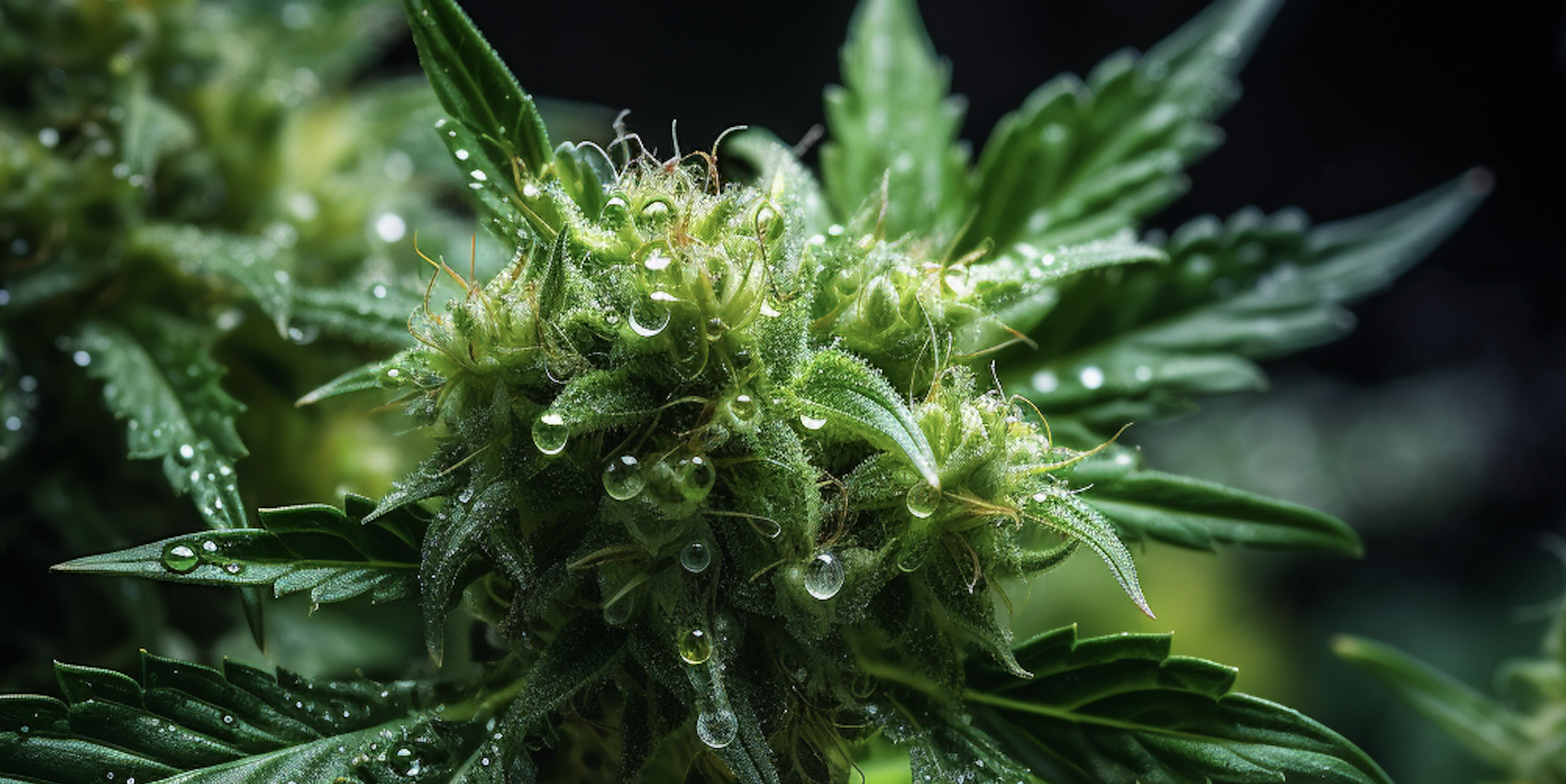
On a sunny Saturday afternoon, my friend Jake and I were hanging out at his place, scrolling through the latest cannabis products online. Just as he reached for a familiar jar of buds, I noticed something new on the website: THCa products. “What’s the deal with this?” I asked, intrigued. Jake shrugged, saying, “It’s cannabis before it wakes up.” That curious comment got us diving down the rabbit hole of what makes THCa such a fascinating addition to the cannabis family.
Unlike its psychoactive siblings, THCa stays dormant until exposed to heat. In raw form, THCa won’t get you high—but it delivers a range of therapeutic benefits that are making it a rising star in the cannabis world. THCa is non-psychoactive, making it ideal for those looking for natural relief without the buzz.
Studies suggest THCa may help with inflammation, nausea, and even neuroprotection, which is great news for those dealing with chronic pain or discomfort. It’s no surprise more enthusiasts are experimenting with THCa-infused smoothies or tinctures, incorporating it into wellness routines. Fresh cannabis juice is also becoming a trendy way to consume THCa and keep the body feeling balanced.
THCa products are available in various forms, from raw flowers to tinctures and capsules. For those who enjoy getting creative, making edibles with THCa offers a chance to harness its benefits before cooking activates THC. Alternatively, you can freeze-dry fresh cannabis leaves to preserve their THCa content over time.
Whether you’re curious about wellness trends or simply looking for new ways to experience cannabis, THCa is worth exploring. It’s a rare chance to enjoy the plant’s benefits without the head rush, allowing users to stay grounded and focused.
What about you—ready to explore THCa and discover what cannabis feels like before it wakes up?
Medical Disclaimer:
The information provided in these blog posts is intended for general informational and educational purposes only. It is not a substitute for professional medical advice, diagnosis, or treatment. Always seek the advice of your physician or other qualified healthcare provider with any questions you may have regarding a medical condition. The use of any information provided in these blog posts is solely at your own risk. The authors and the website do not recommend or endorse any specific products, treatments, or procedures mentioned. Reliance on any information in these blog posts is solely at your own discretion.
Cannabis Blogs
How Can CBD Helps in Managing Viral Diseases

The 2020 COVID-19 pandemic has taught us a lot, especially when it comes to taking care of ourselves and protecting our loved ones against the viral disease. From using face masks, keeping ourselves hydrated all day, and even looking for different ways to manage the symptoms if you’ve been infected.
Among all the interesting remedies and treatments that we have discovered during the pandemic is the connection between CBD and viral diseases. How can the non-intoxicating compound of cannabis helps in managing viral illnesses? Let’s find out here.
CBD and Viral Diseases

One of the key cannabinoids in cannabis is cannabidiol, or CBD, which, in contrast to THC, has no psychoactive properties. Though CBD was once overlooked as a potential treatment for a wide variety of diseases, it is now getting attention as a potential therapeutic vector.
In fact, some circumstantial evidence suggests CBD could be useful for treating viral infections. One study looked into CBD’s effectiveness against Hepatitis C and B viruses. Testing for the virus was done in a culture over the course of many days.
Moreover, CBD was found to have a significant inhibitory effect on HCV cell reproduction, up to 86.4%. Researchers found out that they’re on par with those shown with interferon-alpha, a medicine now used to treat Hepatitis infections.
Researchers evaluated the development of Kaposi’s sarcoma-associated herpesvirus (KHSV) after treatment with CBD in human dermal microvascular endothelial cells. The results of the investigation demonstrated that CBD has weak antiviral activity against KSHV.
It appears that CBD inhibits the spread of KSHV-infected cells, but it has no effect on the efficiency with which the cells are infected. In addition, CBD slowed the progression of KHSV-related malignancies in healthy cells.
Can CBD Helps in Managing Symptoms of Colds and Flu?
An inflamed nose and upper respiratory tract is the root cause of the common cold. Rhinoviruses are the most common viruses responsible for respiratory illnesses, including the common cold and influenza.
Some of the more frequent symptoms of a cold include a sore throat, congestion, runny nose, cough, sneezing, low fever, headaches, and body pains. While there may not be a method to completely eliminate a cold’s symptoms, most people find relief after two weeks of self-care.
CBD has shown promise as a medicinal agent for the treatment of colds due to its antibacterial and antiviral effects, which have been the subject of several research. CBD has been shown to have anti-inflammatory and analgesic effects in scientific studies.
Moreover, according to one research, CBD has been shown to help those with anxiety problems get a better night’s rest. Weak sleepers tend to be more vulnerable to catching a cold.
How to Use CBD for Colds and Flu

CBD’s potential to alleviate cold and flu symptoms, including inflammation and discomfort, suggests it may be useful for those suffering from these conditions. In addition, CBD oils can help those who suffer from anxiety get a better night’s rest. A lowered immune system and increased vulnerability to infection have both been related to poor sleep quality.
CBD oil or tincture is the most effective form of CBD administration for treating common cold symptoms. In most cases, CBD oils are taken sublingually and kept there for up to 60 seconds. In this way, the healing benefits may last anywhere from six to eight hours.
CBD may also be taken orally, either in gummy or capsule form, which is a wonderful method to start using CBD. This is because they are easy to use and have a consistent dose of CBD built in.
On the other hand, it’s important to know that a full-spectrum CBD oil contains all of the cannabinoids and cannabinoids-like compounds found in the cannabis plant, while broad spectrum CBD oil has virtually none. Also, isolated CBD is the purest form of CBD.
Proper Dosage of CBD
CBD has not been recognized by the FDA as a therapy option. For this reason, CBD does not have a universally accepted dose. However, as a rule of thumb, it’s best to ease into things. If you don’t have any negative reactions, you can gradually raise your CBD dosage.
On the other hand, daily microdoses of CBD can be anything from 0.5mg to 20mg. The typical flu symptom of headache may respond well to these dosages. CBD may be useful for inflammation and discomfort when taken in amounts between 10 mg and 100 mg once day.
Moreover, CBD dosages between 25 and 175 milligrams per day have been suggested for the treatment of anxiety. A strong clinical response can be achieved at these doses. However, the researchers in this study only utilized CBD isolate, not a whole-plant extract, so your mileage may vary.
Possible Risks of Using CBD Oil
Harvard Health Publishing expresses concern in a published piece that customers may not know for sure what is in the product or if the dosage information is true because of the absence of regulation.
Some CBD vendors submit their wares for third-party testing, while others don’t, leaving their customers in the dark about the exact components of the oil they’re purchasing. Since the sector is currently poorly regulated, customers frequently have no idea what is in the items until they can get their hands on the findings.
Many people in the United States are at risk for a serious interaction between CBD oil and the numerous pharmaceuticals they already use. Not only may drug interactions reduce a medication’s effectiveness, but they might also trigger unwanted negative effects.
The Legality Status of Using CBD Oil for Viral Diseases
Federal law no longer prohibits selling industrial hemp products with a THC content of less than 0.3% thanks to the passage of the 2018 Farm Bill. Although this is encouraging news, you should still research the CBD legislation in your state just to be safe.
Always keep in mind that CBD is illegal in several U.S. states. To prevent any legal consequences, you should familiarize yourself with the legislation of the various states.
Conclusion
CBD has caught the attention of the public when it comes to its potential therapeutic benefits, especially in managing symptoms of viral diseases. However, there could be risks that should be considered when deciding to use CBD for viral diseases. That said, it’s better to consult your doctor first before taking any CBD products.
Medical Disclaimer:
The information provided in these blog posts is intended for general informational and educational purposes only. It is not a substitute for professional medical advice, diagnosis, or treatment. Always seek the advice of your physician or other qualified healthcare provider with any questions you may have regarding a medical condition. The use of any information provided in these blog posts is solely at your own risk. The authors and the website do not recommend or endorse any specific products, treatments, or procedures mentioned. Reliance on any information in these blog posts is solely at your own discretion.
Cannabis Blogs
How to Creatively Promote Your CBD Brand in Different Social Media Platforms

Facebook, Instagram, Twitter, and other social media platforms have been the go-to place for people to read the news, buy products, and even promote their businesses. Indeed, it’s easy to use these social media platforms! All you have to do is to create an account, know your market, and post your products.
But things are different when your business is anything related to the cannabis plant. We all know how difficult it is to promote cannabis-related products and services. We have seen people being behind the bars for just advertising cannabis products, and as an entrepreneur, you never want that.
All you want is to get your business known by the public and earn, right? But how can you do that if there are restrictions that make it difficult for you to do the easiest way to advertise your products? In this article, we’ll give you some creative ways to promote your CBD brand on different social media platforms without breaking the law. Continue reading to learn more.
Tip #1 Know the Guidelines

Your main goal in using social media is to get engagements and convert these engagements into profit. But, as mentioned, it’s difficult to move when your products are anything related to the cannabis plant, regardless if it’s CBD or not.
But you can still maximize social media platforms to promote your business if you fully understand the guidelines and restrictions on every platform. If you adhere to the platform’s guiding principles and limits, you can earn backlinks. Consequently, ignoring these rules might result in your account being disconnected from the venue.
There’s a lot at stake for CBD brands, which must follow regulations set by the federal government when it comes to social media sites like Facebook and Instagram. You need to ensure that your items are safe to eat, that they are properly labeled, and so on so that you don’t miss out on such an important chance. Research on hemp-infused goods should be adequate and from reliable sources so no one can accuse you of being transparent.
Tip #2 Focus First on Educating Than Selling
Keep in mind that social media pages should only promote useful content and not focus solely on selling. If you provide exact and specific advantages of all the items, such as why CBD is important, the advantages of using hemp-infused products, etc., it will be beneficial. Customers are more likely to pay for your hemp-infused items if they read great reviews from others who have purchased them.
Tip #3 Build Community
Rather than focusing on the number of followers you have on social media, you should be looking to build a community that may be mutually beneficial for you. Having “excellent content” and “interesting information” on your page makes people more inclined to purchase your products.
Make your staff aware of the importance of utilizing the correct hashtag on Twitter in order to get more retweets. Promote your content using cutting-edge methods and find new members of your target audience who can help you grow your business.
Takeaway
It’s difficult to keep up with social media regulations when it comes to the cannabis and CBD market, especially if you want to increase your sales and growth. To avoid account limits and lure your target audience to your social media profiles, you can use the three important tips provided in this article. Let us know what you think!
Medical Disclaimer:
The information provided in these blog posts is intended for general informational and educational purposes only. It is not a substitute for professional medical advice, diagnosis, or treatment. Always seek the advice of your physician or other qualified healthcare provider with any questions you may have regarding a medical condition. The use of any information provided in these blog posts is solely at your own risk. The authors and the website do not recommend or endorse any specific products, treatments, or procedures mentioned. Reliance on any information in these blog posts is solely at your own discretion.
-

 Cannabis Recipes5 years ago
Cannabis Recipes5 years agoCBD-Infused Kahlua Cheesecake Tart With Scientist-Turned-Chef Chris Yang | Like A Chef [VIDEO]
-

 Cannabis Business2 years ago
Cannabis Business2 years agoRAW Paper’s Announces Details On Their “Golden Ticket” Sweepstakes
-

 CBD Plants & Strains5 years ago
CBD Plants & Strains5 years agoCan you smoke CBD hemp flower?
-

 Cannabis 1014 years ago
Cannabis 1014 years agoHow to Choose the Best Dispensary in Scottsdale AZ
-
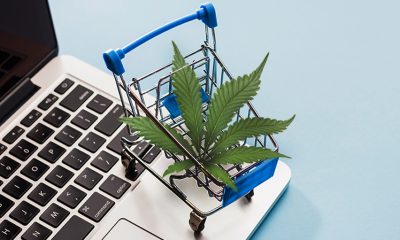
 Cannabis Lifestyle5 years ago
Cannabis Lifestyle5 years agoWhat To Look For When Buying High-Quality CBD Products
-
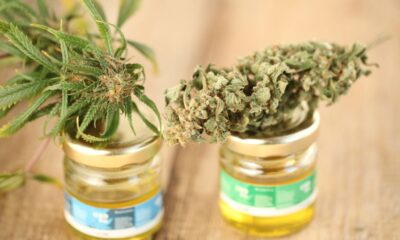
 Cannabis Blogs3 years ago
Cannabis Blogs3 years agoTop CBD Trends in 2022
-

 Cannabis Blogs4 years ago
Cannabis Blogs4 years agoCBD and Coffee
-

 Cannabis Recipes4 years ago
Cannabis Recipes4 years agoCbd & strawberry vinaigrette



